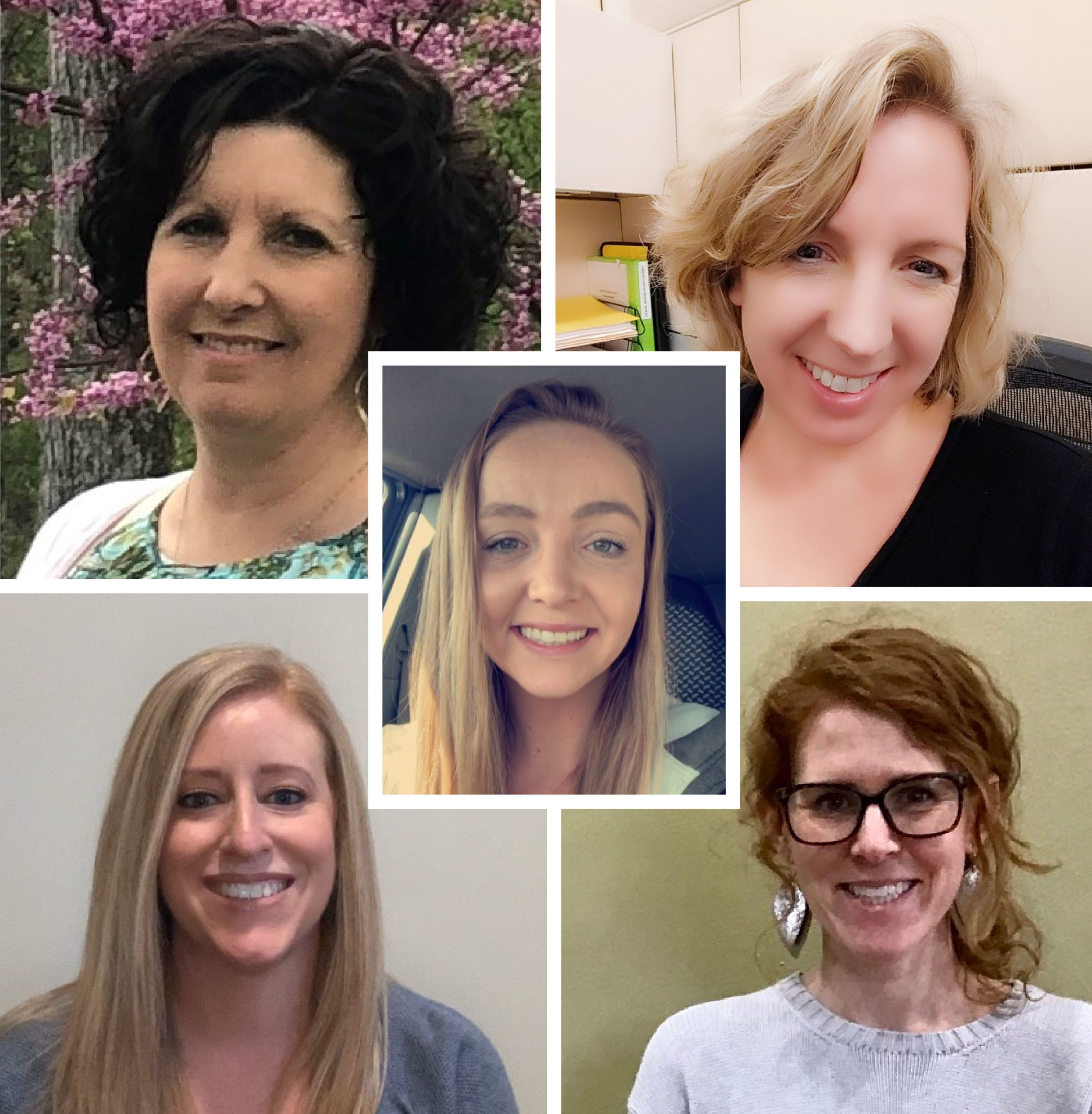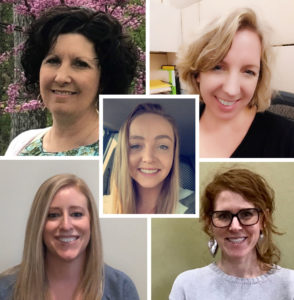
The Fabulous Five: Grafton Cohort Pursues Endorsement in Infant Mental Health
At Grafton’s Infant and Toddler Connection of the Shenandoah Valley (ITC-SV), a group of five professionals are hard at work attaining a specialization in infant mental health. The cohort, dubbed “The Fabulous Five” by ITC-SV’s Director of Early Intervention, Sharlene Stowers, will become the first at Grafton to attain the Virginia Association for Infant Mental Health Endorsement.
The Endorsement program, which takes about two years to accomplish, provides on-the-job and in-service training to support infant and toddler development by focusing, most notably, on nurturing relationships.
“It looks at the whole family dyad,” says Stowers, “recognizing that infants aren’t immune to trauma, and nothing happens in isolation.”
In other words, the mental health of babies and toddlers is inextricably tied to the mental health of the family. And, what happens in the early years of life influences the development across a lifetime.
How it Works
Referrals are made to ITC-SV by pediatricians, social services, and others, but half of all these come from hospitals, where any child that is exposed to substances during pregnancy is automatically referred for potential services. Once a referral is received, cohort member, Camberly Pifer, a substance-exposed service coordinator, conducts an assessment of possible delays to determine eligibility.
“I try to get as much information from the families at the intake as I can,” says Pifer. “I’ve learned through the program that getting to know the families better is key. Their history is so important to what we’re doing.”
Once eligibility is established, an assessment is completed and a service plan is developed. At this time, a determination is made of necessary services. Then, the appropriate providers, each of whom have different roles and backgrounds, are notified.
A typical visit takes place in the home. A provider learns what is new with the family and child, observes their interactions, and provides feedback to address their questions or concerns.
“We give examples of different strategies, techniques, and interactions, and we help them practice those techniques,” explains cohort member Kylie Zoller, a developmental specialist and behavior analyst. “A plan is then made for what’s to be worked on between then and the next visit.”
“When we go into a family’s home, we’re on their turf,” says cohort member and speech therapist, Susan Anderson. “It’s important to be sensitive to what a family may be going through, to listen. Once we know what’s going on in their lives and understand their relationship with their kids, we can tailor our treatment strategies to support and guide them.”
Strategies taught through the Endorsement program aim to educate parents on how significant the early years are to a child’s social-emotional development. Simple tools, for instance, can teach parents how holding your baby while bottle-feeding stimulates growth, and, as they develop, how increased screen time on electronic devices can have a negative effect. Other strategies may include learning how the parents themselves were parented.
“If a parent was raised in a family that was cold and distant and they didn’t get a lot of affection, it’s important to understand that,” explains Zoller. “When parents aren’t picking up on queues from their kids, helping them recognize the disconnect they were exposed to as children is giving them a tool. It’s so much easier to give them those tools if you can really understand why they need them.”
It’s not easy to talk about mental health with a family, nor is it an easy fix. Hours of reflective supervision required by the Endorsement program help the cohort address topics with families in an appropriate and ethical way, to consider cultural and individual family matters, and to seek a deeper connection with the family, which can translate into a family’s deeper connection with their child.
“Sharing with the family that you are pursuing additional training gives them more confidence in your knowledge and your ability to help them,” says cohort member and behavior specialist, Beth Ancell.
“People are so quick to judge the mother of a substance-exposed infant,” says Pifer. “I’ve had the opportunity to work with some incredible parents who happen to have an unfortunate past, including mothers who are participating in the methadone program. In those cases, the child has most likely gone through withdrawal at birth, but I don’t judge. It’s incredible what you can learn about the family when you go in with an open mind and ready to listen.”
The cohort agrees that it’s little things that mean a lot.
“Some of my families, we’ve really built a connection,” says cohort member Zandalee Daugherty, a developmental specialist. “Perhaps we’ve been working with their child for six months to say ‘mom,’ then one day I arrive at their house, and it’s ‘guess what they’re saying?!’ They’re so excited, and it’s the biggest win. It gives them a sense of hope that it’s working.”
“I love to work with kids who have autism spectrum disorders,” says Zoller. “A lot of times their families struggle with big ticket items, like getting their child to eat or to communicate. But often, just giving the parents tools to build a stronger connection is the most encouraging for them. For me, those are the big moments.”
Susan Anderson, who recently became the first cohort member to attain an Endorsement after completing a required portfolio, says, “When I see families taking time together, using those moments as learning opportunities where great things transpire, like first words and skills they’ve never used before, it brings so much joy, watching that happen.”
With over 30 years of combined experience working at Grafton, the cohort also unanimously agrees, “We love our jobs!”
“We may have different roles,” says Pifer, “but we’re all working toward the same goal. We care very much about the mental health of the children we work with.”
